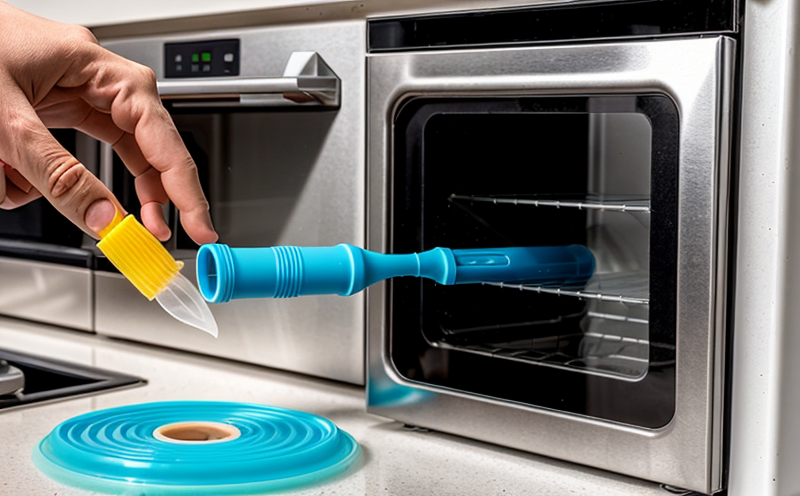ISO 11443 Capillary Rheometer Testing of Household Plastics
The ISO 11443 standard, also known as the capillary rheometer method for measurement of viscosity and other flow properties of polymer melts, is a critical tool in the characterization of household plastics. This service is specifically tailored to provide detailed insights into the rheological behavior of household plastics under shear stress conditions. Understanding this behavior ensures that products meet quality standards and are safe for consumer use.
The capillary rheometer measures the flow properties of polymer melts by forcing them through a narrow orifice (capillary) at a controlled temperature and pressure. This process allows us to assess how well household plastics will perform under various conditions, such as during processing into final products like containers, utensils, and packaging materials.
The testing procedure involves preparing the sample according to ISO 11443 guidelines, which include melting the polymer at a specified temperature range, ensuring uniformity through mixing, and extruding it through a capillary. The flow behavior is then measured by monitoring the pressure required to maintain a steady flow rate.
This service is essential for quality managers, compliance officers, R&D engineers, and procurement teams who need accurate data on polymer melt viscosity as an indicator of material performance during processing. By adhering strictly to ISO 11443, we ensure that the results are consistent and comparable across different laboratories.
The capillary rheometer can provide valuable information about the flow characteristics of household plastics, including shear thinning behavior, yield stress, and elasticity. These properties directly influence processing efficiency and product quality. For instance, a material with low viscosity will flow more easily during injection molding, reducing cycle times and improving part uniformity.
In addition to its role in manufacturing processes, ISO 11443 testing also supports sustainability efforts by providing data that can help develop more efficient production methods. By optimizing processing conditions based on rheological properties, manufacturers can reduce energy consumption and waste generation.
| Standard | Description |
|---|---|
| ISO 11443 | The capillary rheometer method for measurement of viscosity and other flow properties of polymer melts. |
The data obtained from this testing can be used to improve product design, enhance manufacturing processes, and contribute to sustainable practices. It is a vital tool in ensuring that household plastics meet stringent quality standards while being environmentally friendly.
Applied Standards
| Standard | Description |
|---|---|
| ISO 11443 | The capillary rheometer method for measurement of viscosity and other flow properties of polymer melts. |
Benefits
- Enhanced product quality by ensuring consistent flow behavior during processing.
- Prediction of potential issues in the manufacturing process, leading to cost savings and reduced waste.
- Support for sustainable practices through optimized production methods.
- Achievement of regulatory compliance with industry standards like ISO 11443.
- Improved customer satisfaction due to higher-quality products.
Environmental and Sustainability Contributions
- Reduction in energy consumption during the manufacturing process by optimizing processing conditions based on rheological properties.
- Decrease in waste generation through more efficient production methods.
- Promotion of circular economy principles by supporting better material selection and recycling practices.





